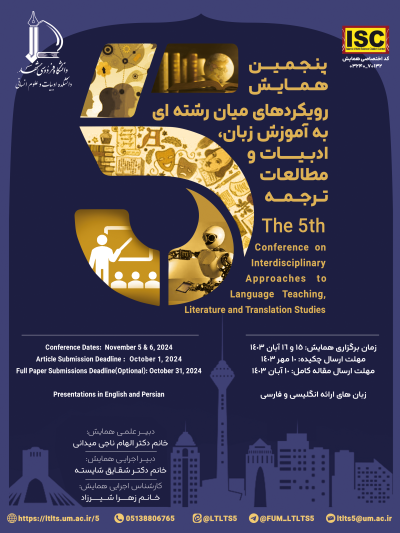0% Complete

نویسندگان :
کلمات کلیدی :
چکیده :
لیست مقالات بایگانی شده
علی حسنی - علی اصغر شهبازی
عبدالله حسینی - علی اسودی - زهرا ایزدی - نشاط پوراسلامی
اکرم افخمی - رامین محرمی
Shahrzad Mohammad Hosein - Hoda Shabrang
Ali Bardideh - Anahita Bordbar
Elham Naji Meidani - Hodeis Yousofiyan

